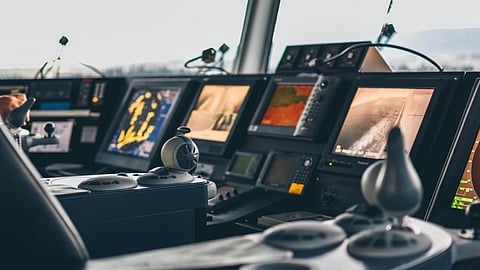COLUMN | On tech anxiety and other mental health challenges faced by seafarers [Grey Power]
“Is technology making you anxious?”
It would not be even remotely surprising if it was, with the extraordinary speed of its development and the assumption that you are expected to “just get on with it and adapt.”
And for those trying to keep up with it all aboard ship, there are plenty of extra difficulties, as they wrestle with new equipment, new regulations and often a minimum of useful training.
There are some unsettling observations from the maritime healthcare Vikand, which suggests that there is a need to recognise the effect of new technology on seafarers’ mental health, with its impact still unfolding and not properly understood.
The company’s director of mental wellness Martin Hedman points out that while the technology may be thought to be positive, it could introduce psychological stressors, “which have not been fully accounted for.”
There has been plenty of interest in seafarers’ mental well-being in recent times, which is probably all to the good. However, it is not difficult to see why the industry habit of just dumping new technology on the ship, with the minimum of input from those who are expected to work it, might be exceedingly unsettling.
Additionally, the huge improvements in connectivity might be something of a double-edged sword to lonely people afloat, sitting in solitude with their devices, worrying about the news from home, loved ones far away, “doomscrolling” in a way that becomes compulsive.
And to others with the responsibilities of the ship on their shoulders, with their instant accessibility to those monitoring everything from a shore side management or charterer’s office, there will be additional anxieties.
Does all this technology emerge with “human-centred design?” And is there any real training that will assist the individual to gain confidence in its functions and implications, other than some instruction manual on the screen conducted in a strange language that is probably not one's own?
As with the new attention to mental health, there are regular comments about the need for more “user input” into technical equipment, but are the shipbuilders and equipment manufacturers really listening? It is something of a sea change if the builder thinks about anything other than his own convenience and the price of everything when fitting out a ship.
I always recall an old friend (who never enjoyed a long retirement) who rejoined his big containership after being on leave, to find that his owners had completely changed all his bridge equipment and he was expected to take the ship to sea within hours.
You can see why he might have been anxious. It is unarguable that compared with yesteryear, there is a lot more to be anxious and stressed about, with the intensity of marine operations, fewer people aboard just in case you might wish to confide in them and a cascade of regulatory pressures coming in step with the new technology.
Just consider the growth of environmental regulations, the endless requirement to report to one authority or another, and the threats of prosecution if a dot or comma is in the wrong place in your reporting.
Also keep in mind the endless variety of port by-laws and a lack of consistency in their application, the new technology that has been helpfully introduced, the complexities you may only half-understand, and your concern when it goes wrong in the hot, vibrating atmosphere of a merchant ship’s machinery space.
And let us not overlook worries about unsympathetic and sometimes corrupt officials, stamping up the gangway in the midst of a frantic port turnaround, looking for faults, demanding time and access, even scrutinising personal devices and treating visiting seafarers like potential criminals.
It is probably a source of worry and stress when one reads the everlasting purple prose about how artificial intelligence is going to “change your life.” You would not really think that there could be any more crew reductions, but who would put money on it, with the over-hyped attention to autonomous ships?
The Vikand people point out that older people may find the march of technology harder to cope with, but also that more senior people might be rather more reticent about looking for mental health support, lest it be held against them. In our wicked old industry, their concerns may be entirely justified.


